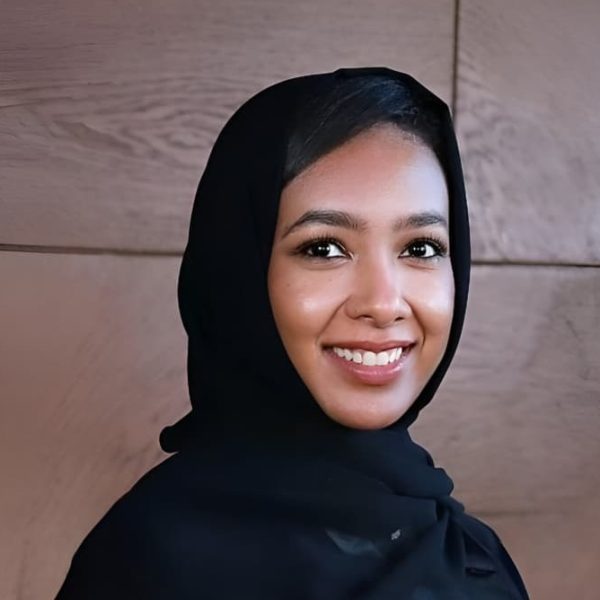Theatre as Life: Defying Stereotypes in Lebanon’s Art Scene
1. As a young actress in Lebanon’s vibrant yet challenging theatre scene, what is the struggle you wish more people understood?
As an actress in Lebanon, I wish the stereotypical view of acting, especially theatre, as mere entertainment or a waste of time would disappear. Theatre, for us, is life: it’s flesh, blood, and sweat. It’s our daily bread as actors. I hope some people (not all) can understand the depth of effort and the many challenges we face to present this art truthfully.
From ‘The Outsider’ to Russian Classics: A Literary Awakening
2. What was the first book you ever read?
The first book I read was “The Outsider” by Colin Wilson. Thanks to it, I started reading Russian literature, Chekhov, Dostoevsky, and Tolstoy. That book taught me to seek what I want to belong to by my own will, not what life or society decides for me.
Dostoevsky’s Shadow: How Philosophy Shapes Performance
3. You mentioned reading Russian philosophy, how have thinkers like Dostoevsky or Chekhov influenced your acting and storytelling?
Reading the works of those authors and philosophers deepened my understanding of human nature and the complexity of characters. It allows me to dive into the details of any role I play and deconstruct it to perform it with honesty and transparency. Acting is not just performance; it’s a psychological and emotional embodiment.
Funding Drought: The Battle to Sustain Lebanese Theatre
4. Lebanon has a rich cultural scene, but often lacks funding. What is the biggest obstacle you face as a young artist?
Quite simply: a lack of funding. It makes it extremely difficult to realize artistic projects that we, the creative, ambitious young generation, strive to create. This lack stands in the way of sustainable theatre work and the growth of the theatrical movement in Lebanon, despite all the energy and talent we possess.
Art as Resistance: Confronting Reality Onstage
5. In a country experiencing so much political and social tension, do you see theatre as an escape from reality, a form of resistance, or something else entirely?
Theatre is the space and the work I love and belong to. It’s not an escape, but rather a tool of resistance and change, a platform through which we confront reality truthfully. It has helped me step out of my comfort zone and discover what I’m capable of creating, changing, or presenting to provoke thought, even things others might fear to bring up.
Building a Character: Where Text and Philosophy Collide
6. How do you prepare for a role? Do your philosophical readings influence how you build a character?
I begin by reading the text and understanding its context and background. Then I rehearse, working on voice, body, and emotions, until I reach a truthful outcome to present to the audience. Every role carries responsibility, and I aim to honor that through thorough and honest preparation. Philosophy certainly deepens that process.
Lebanese Audiences: Between Entertainment and Political Awakening
7. Lebanese audiences are known for their passion. How do they respond to experimental or politically charged theatre?
The Lebanese audience is diverse. Some seek entertainment, while others go to the theatre to think and reflect. Today, politics is present in nearly every theatrical work because it mirrors people’s struggles. It creates a sense of urgency and invites dialogue; it brings the art closer to everyday concerns.
Meryl Streep & Beyond: The Icons Who Define an Artist
8. Which artists or philosophers have influenced you the most, and why?
The legendary actress Meryl Streep. She’s a symbol of excellence and professionalism. Her strength, humility, and ability to adapt to diverse roles make her one of the greatest actresses of all time. She inspires me because she started from humble beginnings and built her career through constant effort. That’s exactly what many of us are doing today.
A Decade Ahead: Can Lebanese Theatre Go Global?
9. Where do you see Lebanese theatre a decade from now? What role will young artists play in that future?
Despite all the challenges, I see Lebanese theatre in its prime. We, especially graduates from the Lebanese University, are producing works that are worthy of international recognition. There’s an enormous pool of creative energy from actors, writers, directors, and artists. I hope our work gets the spotlight it deserves and that one day our texts will be part of global literature curricula. We deserve that.
Sacrifices for the Stage: The Hustle Behind the Curtain
10. Finding theatre work in Lebanon isn’t easy. What sacrifices have you had to make for your art?
Acting is about opportunities, and getting a role isn’t easy. So I try to create my opportunities by balancing my personal and artistic life. I’ve often had to sacrifice outings with friends or moments of fun. I work in different fields to survive while continuing my search for roles. I constantly try to expand my network in the industry and prove myself as an actress.
Dream Project: Why ‘Les Misérables’ Mirrors Lebanon’s Struggle
11. If you could stage any play, with no budget or logistical limits, would it be, and why?
Les Misérables by Victor Hugo. It embodies the conflict between justice and mercy and touches deeply on human suffering and social inequality, issues we face daily in Lebanon. I see in it the faces of our people, their pain, their dignity. That’s why I long to bring it to life on stage.
Stay Connected:
https://www.instagram.com/dania_awadd











